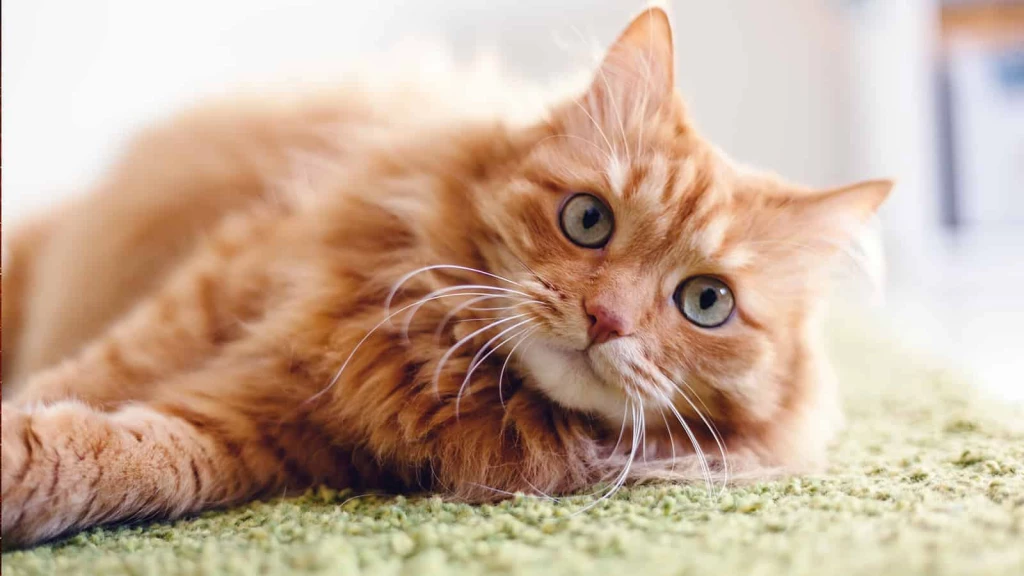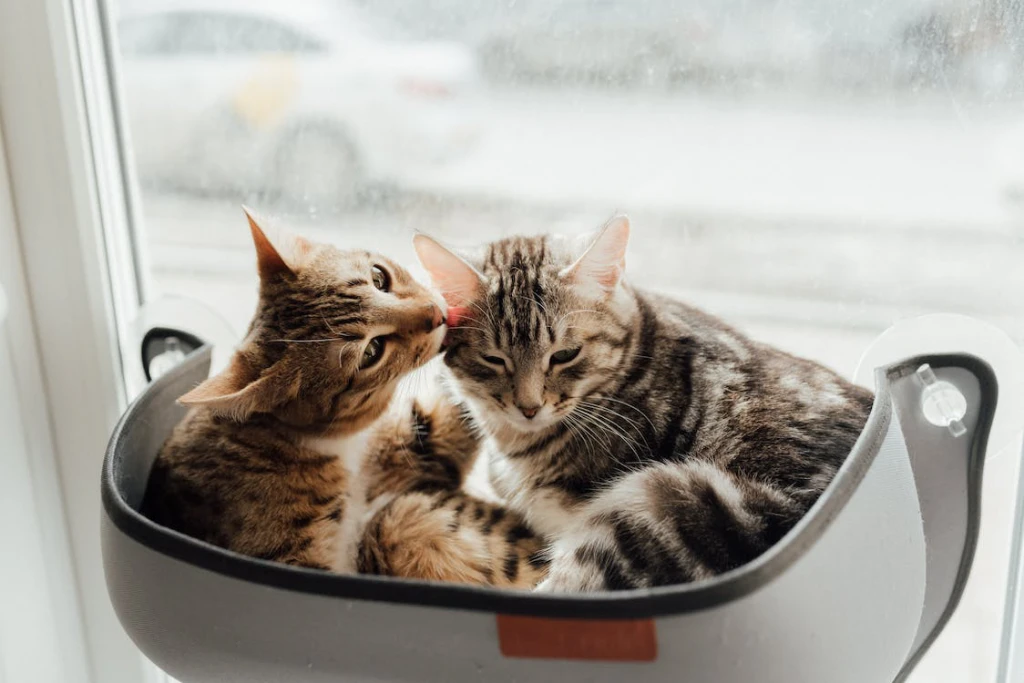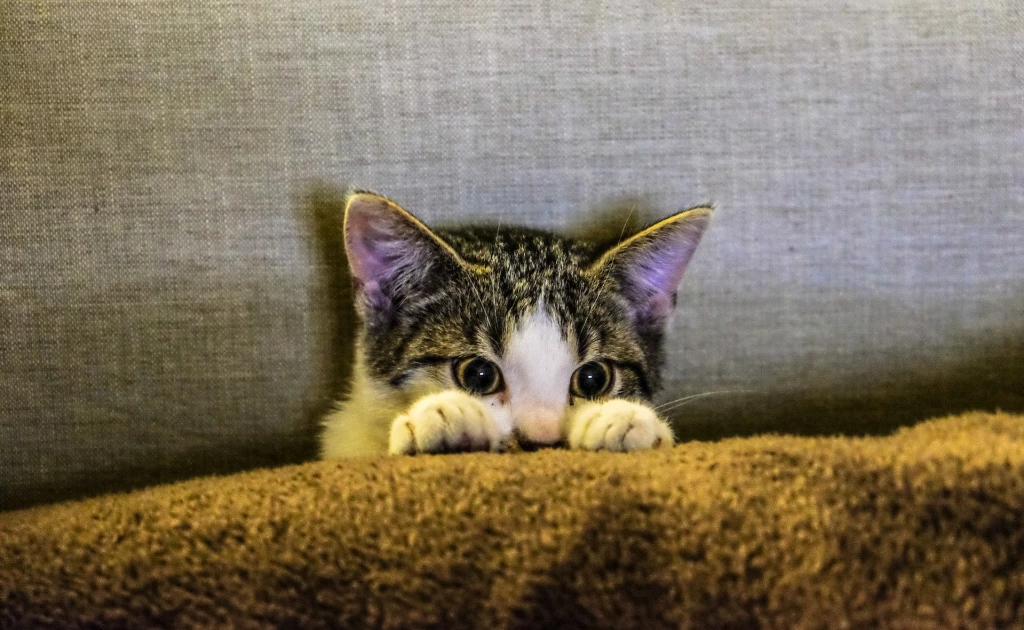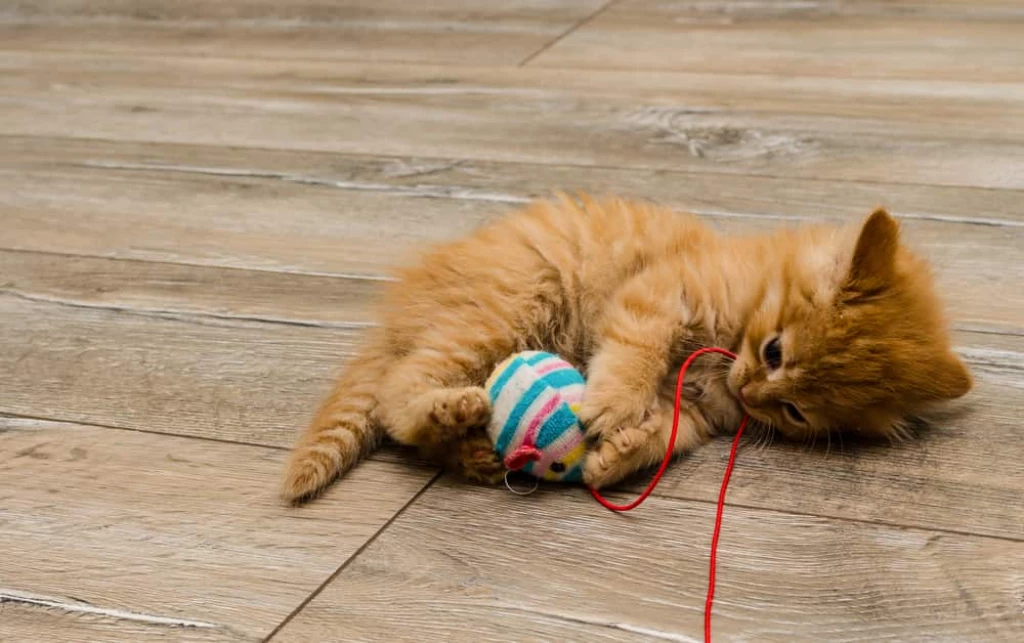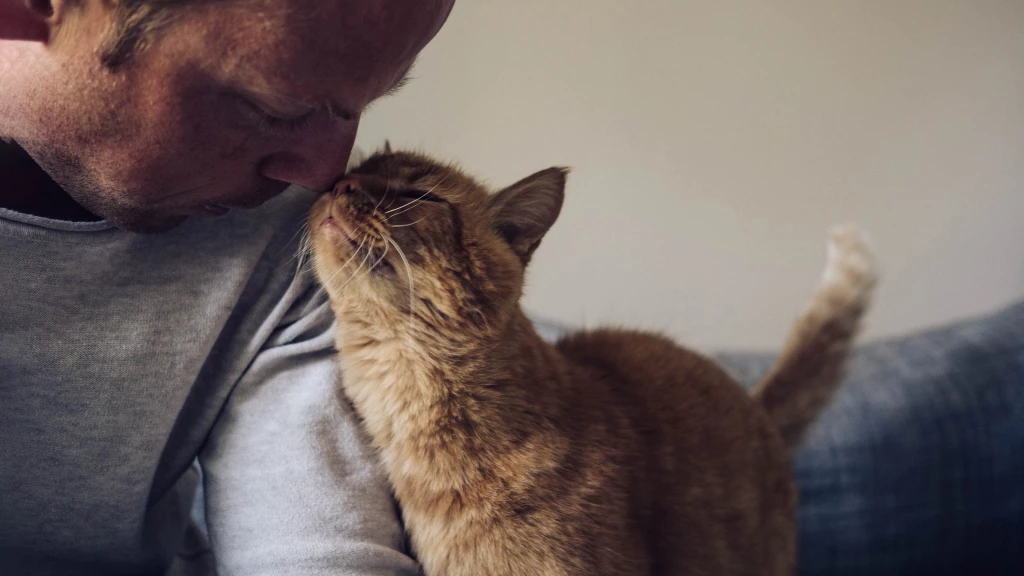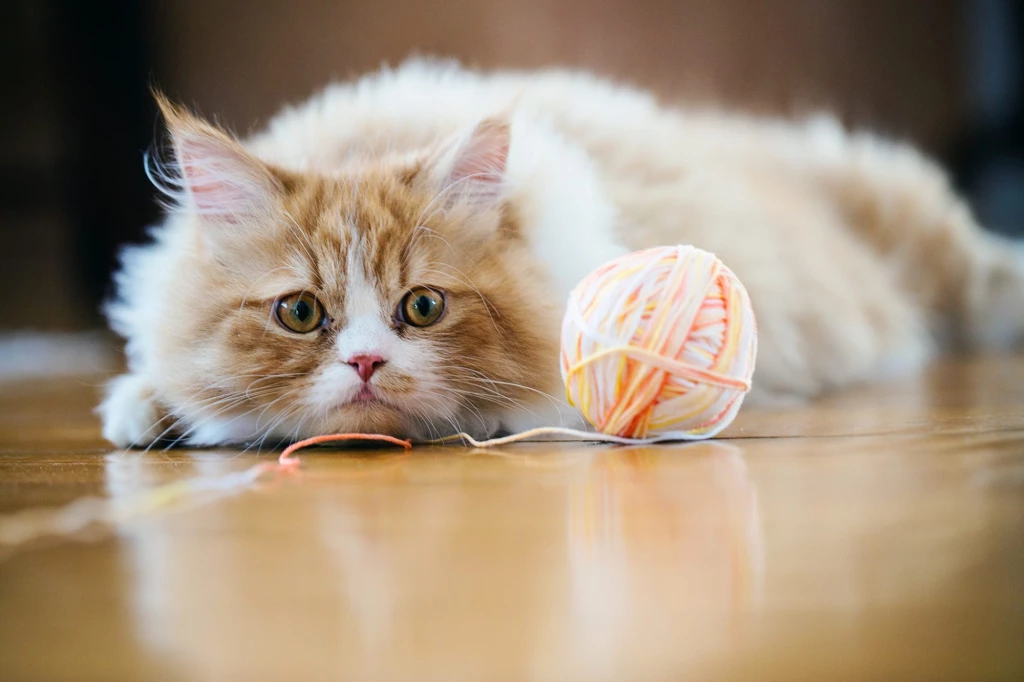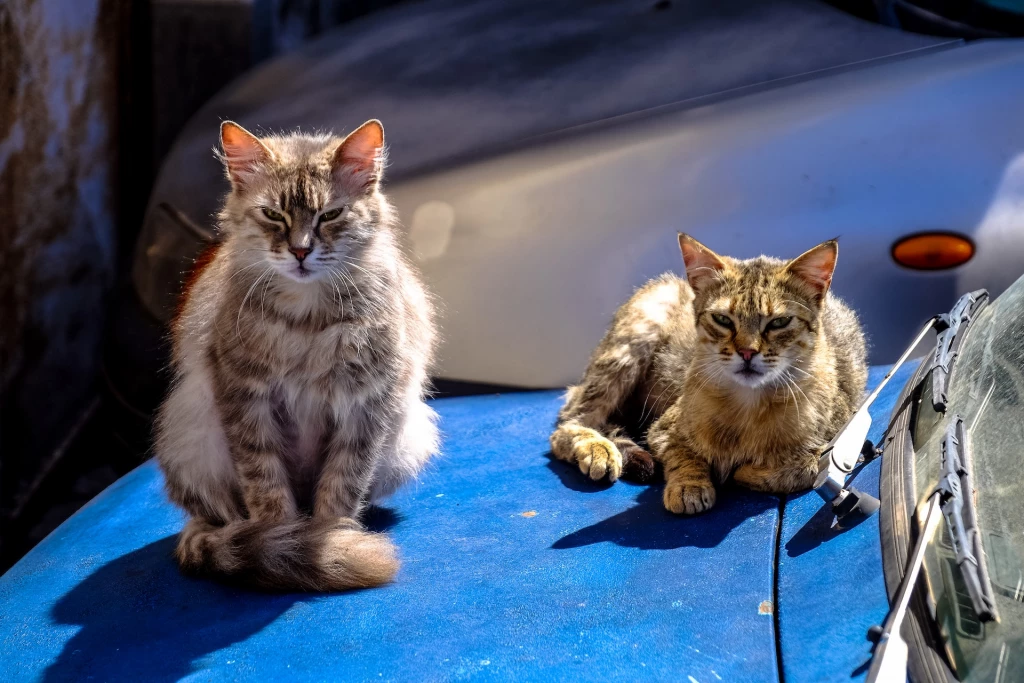Have you ever wondered why are orange cats so dumb? Maybe you have an orange cat or know someone who does, and you have noticed that they tend to act in ways that seem silly or clumsy. Or maybe you have heard or read some jokes or stereotypes about orange cats being lazy and not as bright as other cats. But are these claims true? Are orange cats really dumb, or is there more to them than meets the eye?
In this blog post, we will explore the myth of orange cats being dumb and reveal the truth behind their unique personalities and traits. We will explain what causes orange cats to have their distinctive coat color and how it has nothing to do with their intelligence or cognitive abilities. We will also discuss some of the common personality traits and characteristics of orange cats and how they make them lovable and interesting companions.
We will also address some of the possible reasons why people may perceive orange cats as dumb or not as bright as other cats and how to understand or appreciate their behaviors as expressions of their individuality. Finally, we will highlight some of the benefits and advantages of having an orange cat as a pet and how they can enrich your life with their love, companionship, entertainment, and uniqueness.
What Are Some Common Myths and Stereotypes About Orange Cats?
Orange cats are often associated with certain myths and stereotypes that may or may not reflect their true nature. Some of these are based on folklore, culture, media, or personal experience. Here are some of the most common ones and what the truth behind them is:
- Orange cats are dumb: This myth may have originated from the popular comic strip Garfield, which features a lazy, gluttonous, and sarcastic orange tabby cat. However, there is no scientific evidence that orange cats are less intelligent than other cats. In fact, some studies have suggested that orange cats may be more curious and playful than other cats, which could indicate a higher level of cognitive ability.
- Orange cats are friendly: This stereotype may have originated from the fact that orange cats are more likely to be male than female, and male cats tend to be more sociable and affectionate than female cats. However, this does not mean that all orange cats are friendly or that all non-orange cats are unfriendly. Personality traits vary widely among individual cats regardless of their coat color. Some orange cats may be shy, aloof, or aggressive; some non-orange cats may be outgoing, cuddly, or gentle.
- Orange cats are rare: This myth may have originated from the fact that orange female cats are rare due to the sex-linked nature of the orange gene. However, this does not mean that orange male cats are rare as well. In fact, orange male cats are quite common and make up about 80% of all orange cats.
- Orange cats are lucky: This stereotype may have originated from various cultures and traditions that regard orange as a symbol of good fortune, happiness, or prosperity. For example, in Japan, orange is considered a lucky color for business and money; in China, orange is associated with wealth and abundance; in Ireland, orange is one of the colors of the national flag and represents courage and loyalty. However, this does not mean that all orange cats bring luck or that all non-orange cats bring bad luck. Luck is a subjective concept that depends on one's perspective and attitude.
As you can see, orange cats are not so different from other cats in terms of their intelligence, personality, rarity, or luck. They are simply beautiful creatures with a unique coat color that makes them stand out from the crowd. If you have an orange cat or are thinking of adopting one, you should appreciate them for who they are and not for what they look like.
Why Do Some People Think Orange Cats Are Dumb?
Orange cats are often the butt of jokes and memes that portray them as dumb or not as bright as other cats. But is there any truth to this stereotype? Are orange cats really less intelligent than other cats?
The answer is no. Orange cats are not dumb. In fact, most orange cats are considered to be of at least average intelligence. They are not necessarily known to be dumb, but you may still find the occasional orange cat with a lower IQ. As mentioned above, a cat's intelligence has less to do with its coat color, and more to do with its breed, health, and upbringing.
So why do some people think orange cats are dumb? There may be several reasons for this misconception, such as:
- Media influence: Orange cats are often depicted as lazy, gluttonous, and sarcastic in popular media, such as the comic strip Garfield or the movie Garfield: The Movie. These characters may influence how people perceive orange cats in real life, even though they are fictional and exaggerated.
- Behavior interpretation: Orange cats may act in ways that seem silly or clumsy to some people, such as forgetting where the litter box is, getting into trouble, or being easily distracted. However, these behaviors may not be signs of low intelligence, but rather expressions of their personality and individuality. Orange cats may be more curious, playful, or lack attention span than other cats, which could explain some of their antics.
- Confirmation bias: Some people may have a preconceived notion that orange cats are dumb and look for evidence to support their belief. They may ignore or dismiss any signs of intelligence or cleverness in orange cats and focus only on their mistakes or failures. This way, they confirm their own stereotype and reinforce their negative attitude towards orange cats.
As you can see, there is no scientific basis for the myth that orange cats are dumb. Orange cats are just as smart as any other cat and have their own unique traits and talents. If you have an orange cat or are thinking of adopting one, you should not judge them by their coat color but by their character and potential. You may be surprised by how intelligent and amazing they are!
What Are Some of the Personality Traits or Characteristics of Orange Cats?
Orange cats are not only known for their distinctive coat color, but also for their personality traits or characteristics. Of course, every cat is an individual with its own unique temperament, but some general patterns and tendencies can be observed among orange cats. Here are some of the personality traits or characteristics of orange cats:
- Friendly: Orange cats are thought to be friendlier and more affectionate than other cats. They tend to be sociable, companionable, fun-loving, and amiable feline friends of humans. They may also get along well with other cats and animals, as long as they are properly introduced and socialized.
- Curious: Orange cats may be more curious and playful than other cats. They may have a strong sense of adventure and exploration, which could lead them to get into trouble or mischief sometimes. They may also be easily distracted by new sights, sounds, smells, or objects.
- Risky: Orange cats may be more likely to engage in risky behaviors that result in death, such as roaming outside, fighting with other animals, or getting hit by cars. This may be due to their boldness, confidence, or lack of fear. They may also have a higher metabolism and energy level than other cats, which could make them more active and restless.
- Dominant: Orange male cats may enjoy greater social status and thus reproductive success in rural locations, where the mating system of cats is more polygynous (one male mates with multiple females). This may be due to their physical and behavioral differences, such as being larger, heavier, more aggressive, and more territorial than other male cats. However, this advantage may not apply in urban locations, where both female and male cats have multiple mates.
- Lucky: Orange cats are often considered to be lucky or auspicious in various cultures and traditions. For example, in Japan, orange is a lucky color for business and money; in China, orange is associated with wealth and abundance; in Ireland, orange is one of the colors of the national flag and represents courage and loyalty. However, this does not mean that all orange cats bring luck or that all non-orange cats bring bad luck. Luck is a subjective concept that depends on one's perspective and attitude.
As you can see, orange cats have some personality traits or characteristics that make them stand out from other cats. However, these traits or characteristics are not fixed or universal; they may vary depending on the individual cat's breed, health, upbringing, environment, and experience. If you have an orange cat or are thinking of adopting one, you should appreciate them for who they are and not for what they look like.
How Do You Measure a Cat's Intelligence or Cognitive Abilities?
Cat intelligence is a fascinating topic that has intrigued many researchers and cat lovers alike. But how do you measure a cat's intelligence or cognitive abilities? What are some of the factors that influence a cat's intelligence? Do you think coat color has any effect on a cat's intelligence?
These are not easy questions to answer, as there is no single or definitive way to assess feline intelligence. Different methods and criteria may yield different results and interpretations. However, there are some general approaches and findings that can help us gain some insight into how cats think and learn.
One of the most common ways to measure animal intelligence is based on survival behavior. This means looking at how animals adapt to their environment, solve problems, communicate, and cooperate with others. Some examples of survival behavior in cats include:
- Hunting: Cats are natural predators that use their senses, instincts, and skills to catch and kill prey. They can also learn from their experiences and improve their hunting strategies over time.
- Navigation: Cats have a remarkable sense of direction and spatial awareness that allows them to find their way around unfamiliar places. They can also use landmarks, smells, sounds, and magnetic fields to orient themselves.
- Socialization: Cats are social animals that form bonds with other cats and humans. They can also recognize and respond to different emotions, expressions, and gestures. They can also cooperate or compete with others for resources or territory.
Another way to measure animal intelligence is based on learning ability. This means looking at how animals acquire new information or skills that can be applied to new situations. Learning ability can be influenced by various factors, such as genetics, motivation, attention, memory, and feedback. Some examples of learning ability in cats include:
- Conditioning: Cats can learn to associate certain stimuli with certain outcomes, such as a bell with food or a clicker with a treat. They can also learn to perform certain behaviors to obtain rewards or avoid punishments.
- Imitation: Cats can learn by observing and copying the actions of others, such as opening doors, using toilets, or playing fetch. They can also learn from their own reflection or from videos.
- Problem-solving: Cats can use logic, trial-and-error, or creativity to overcome obstacles or challenges, such as escaping from a box, retrieving food from a puzzle feeder, or manipulating objects.
A third way to measure animal intelligence is based on brain structure and function. This means looking at the physical features and activities of the brain that are related to cognition and behavior. Brain structure and function can be influenced by various factors, such as evolution, development, nutrition, and stimulation. Some examples of brain structure and function in cats include:
- Brain size: The brain of the domesticated cat is about five centimeters (2.0 in) long and weighs 25–30 g (0.88–1.06 oz). It occupies about 0.91% of its total body mass, compared to 2.33% in humans. However, brain size alone is not a reliable indicator of intelligence, as it does not account for other factors such as brain organization and efficiency.
- Brain folding: The surface of the cat's brain is folded into ridges and grooves that increase its relative surface area. This allows for more neurons (nerve cells) and synapses (connections) to fit into a smaller space. More neurons and synapses mean more processing power and complexity for the brain.
- Brain regions: The cat's brain has several regions that perform specialized functions related to cognition and behavior. For example, the cerebral cortex is responsible for higher-order thinking skills such as perception, memory, attention, reasoning, and decision-making; the cerebellum is responsible for motor coordination and balance; the amygdala is responsible for emotional processing and responses; and the hippocampus is responsible for spatial navigation and learning.
Common Misconceptions About Orange Cats
- Orange cats are dumb: As we've already discussed, this is simply not true. Orange cats are just as intelligent and capable as any other cat breed.
- Orange cats are aggressive: While every cat is an individual, there is no evidence to suggest that orange cats are more aggressive than other cats. In fact, many orange cats are known for their friendly and outgoing personalities.
- Orange cats are all male: While it is true that most orange cats are male, there are also many female orange cats. The gene that causes orange fur is carried on the X chromosome, which means that female cats need to inherit two copies of the gene to have orange fur.
- Orange cats have health problems: There is no evidence to suggest that orange cats are more prone to health problems than other cat breeds. Like all cats, they may be susceptible to certain health conditions, but with proper care and attention, they can live long and healthy lives.
- Orange cats are all the same: While it's true that many orange cats share some common personality traits, every cat is an individual with their own unique personality. Some orange cats may be more outgoing or playful than others, while others may be more laid-back and independent.
Conclusion
we have debunked the myth of orange cats being dumb and revealed the truth behind their unique personalities and traits. We have shown that there is no correlation between a cat's coat color and its intelligence or cognitive abilities and that intelligence is a complex trait that depends on various factors, such as genetics, environment, socialization, and personality.
We have also shown that orange cats have many personality traits and characteristics that make them playful, curious, friendly, loyal, affectionate, vocal, adventurous, and independent. We have also explained some of the possible reasons why people may perceive orange cats as dumb or not as bright as other cats and how to understand or appreciate their behaviors as expressions of their personality and individuality.
Lastly, we have highlighted some of the benefits and advantages of having an orange cat as a pet and how they can enrich your life with their love, companionship, entertainment, and uniqueness.
Our main message is that orange cats are not dumb, but rather have unique personalities and traits that make them lovable and interesting companions. We hope that you have enjoyed reading this blog post and that you have learned something new about orange cats and their amazing qualities.
If you have an orange cat or know someone who does, we encourage you to adopt or appreciate them or share your own experiences or opinions on orange cats. And if you don't have an orange cat yet, maybe you should consider getting one. After all, who wouldn't want a furry friend who can brighten up your day with their colorful coat and charming personality?
